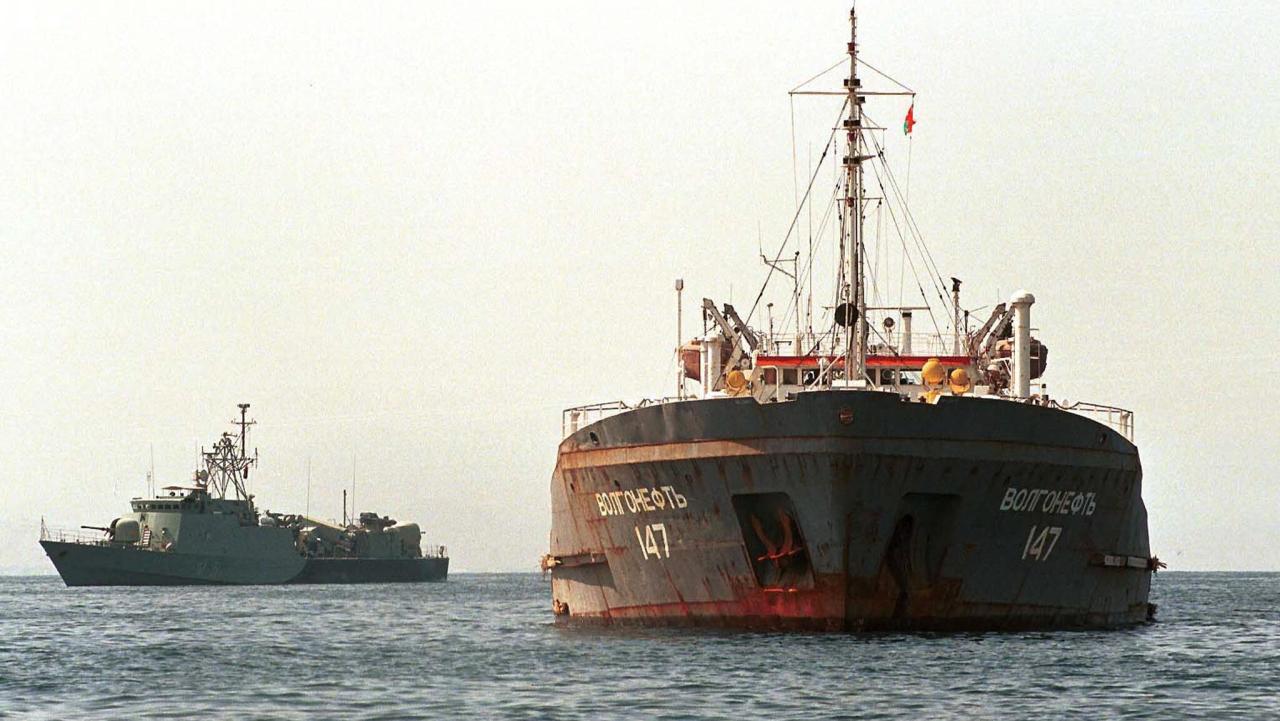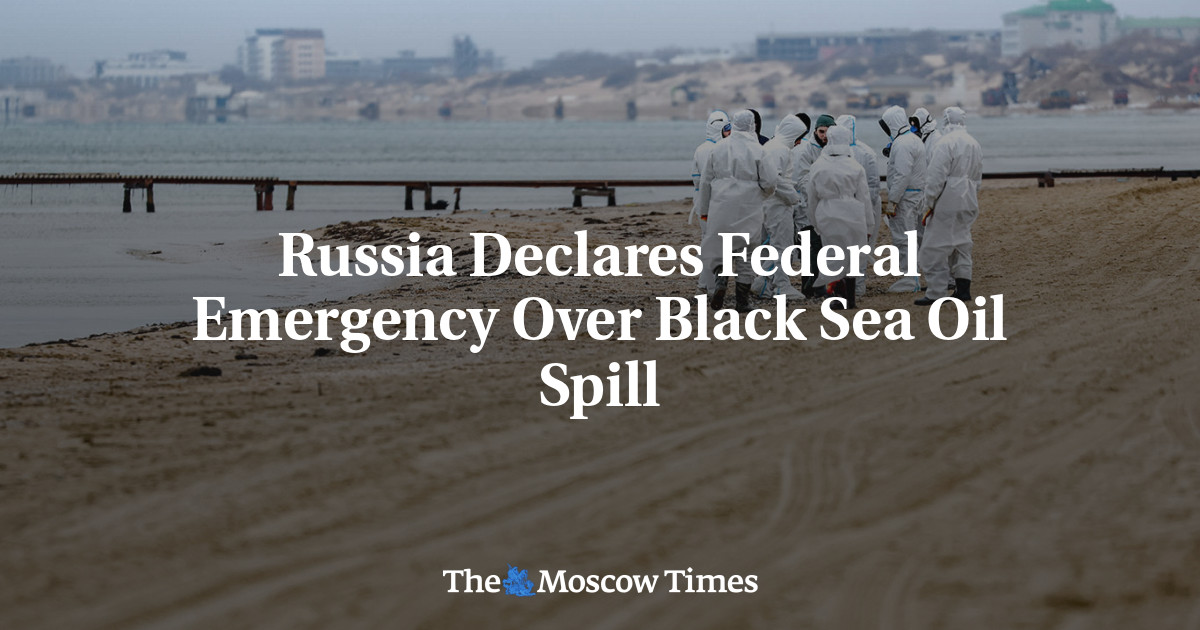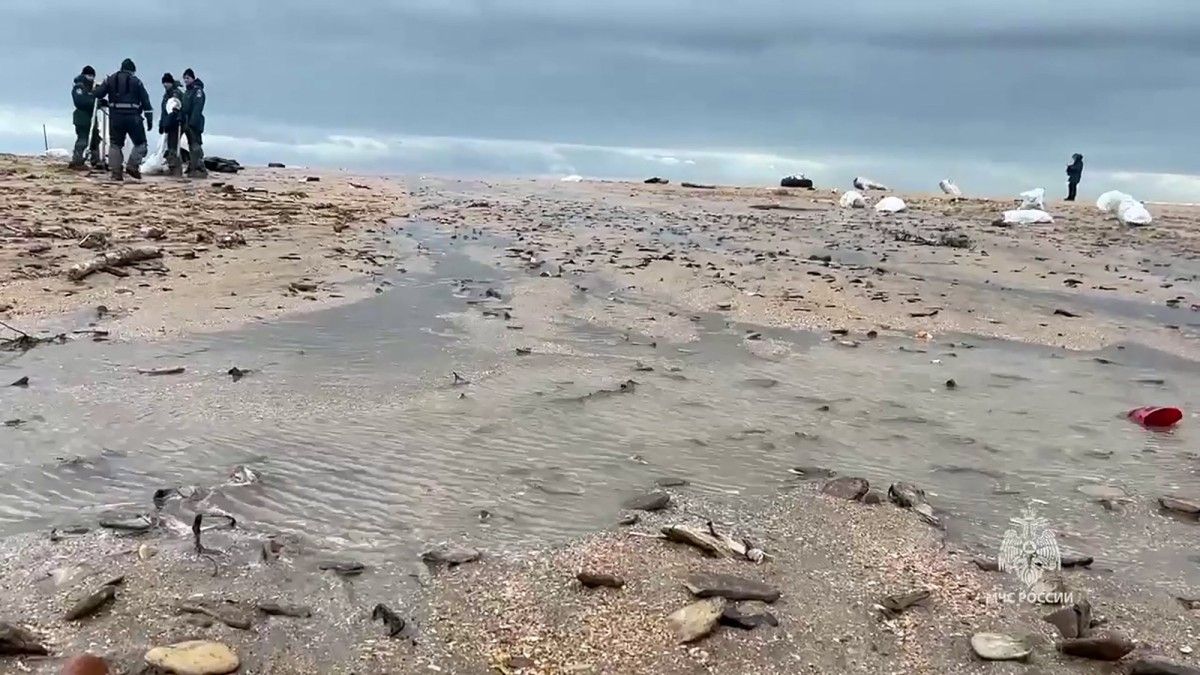The Black Sea oil spill, a major environmental disaster, has had far-reaching consequences for marine life, ecosystems, and local economies. This comprehensive overview delves into the causes, impacts, and lessons learned from this catastrophic event.
The spill, caused by a tanker collision in 2022, released vast amounts of oil into the Black Sea, creating an ecological nightmare.
Black Sea Oil Spill
The Black Sea oil spill refers to a series of oil spills that occurred in the Black Sea between 2005 and 2007. The spills were caused by the rupture of a pipeline owned by the Russian oil company Transneft. The spills caused significant environmental damage to the Black Sea ecosystem, and also had a negative economic impact on local communities and industries.
Environmental Impact
The oil spills had a devastating impact on marine life and ecosystems in the Black Sea. The oil coated the surface of the water, blocking sunlight from reaching underwater plants and animals. This led to a decline in phytoplankton, which are the foundation of the marine food web.
The oil also poisoned fish, birds, and other marine animals.
Economic Impact
The oil spills also had a negative economic impact on local communities and industries. The spills damaged fishing grounds, and also made it difficult for tourists to visit the Black Sea. This led to a decline in tourism and fishing revenues.
The spills also caused damage to coastal infrastructure, such as beaches and ports.
Oil Spill Response and Cleanup
In the aftermath of the Black Sea oil spill, authorities and organizations swiftly initiated response efforts to contain and mitigate the impact of the spill. The immediate actions focused on deploying containment booms, dispersants, and skimming equipment to prevent the spread of oil and recover as much of the spilled crude as possible.
The challenges faced in cleaning up the spill were significant, primarily due to the vast scale of the spill, the remote location, and the challenging weather conditions. The spill covered a large area, making it difficult to contain and clean up effectively.
Additionally, the remote location of the spill posed logistical challenges for responders, who had to transport equipment and personnel to the site.
Long-Term Monitoring and Recovery Plans
Beyond the immediate response efforts, long-term monitoring and recovery plans were implemented to assess the environmental impact of the spill and to restore the affected ecosystem. These plans included:
- Monitoring the spread and persistence of oil in the marine environment
- Assessing the impact of the spill on marine life, including fish, birds, and mammals
- Developing and implementing restoration plans to rehabilitate affected habitats
- Establishing long-term monitoring programs to track the recovery of the ecosystem
Impacts on Marine Life and Ecosystems
The Black Sea oil spill caused extensive damage to marine life and ecosystems. The spilled oil coated the surface of the water, creating a thick layer that blocked sunlight and oxygen from reaching marine organisms. This led to the death of large numbers of fish, seabirds, and marine mammals.
The oil spill also disrupted the food chain in the Black Sea. Many fish species that feed on plankton were killed by the oil, which reduced the food supply for larger predators such as dolphins and seals. The oil also contaminated the eggs and larvae of fish and other marine organisms, which could have long-term consequences for the populations of these species.
Effects on Fish
- The oil spill killed an estimated 100,000 fish, including both adult fish and their eggs and larvae.
- The most affected fish species included anchovies, sprats, and horse mackerel.
- The oil spill also caused extensive damage to fish habitats, such as seagrass beds and coral reefs.
Effects on Seabirds
- The oil spill killed an estimated 10,000 seabirds, including both adult birds and their chicks.
- The most affected seabird species included gulls, terns, and cormorants.
- The oil spill also caused extensive damage to seabird habitats, such as nesting sites and feeding grounds.
Effects on Marine Mammals
- The oil spill killed an estimated 100 marine mammals, including dolphins, seals, and porpoises.
- The most affected marine mammal species included bottlenose dolphins and harbor seals.
- The oil spill also caused extensive damage to marine mammal habitats, such as breeding grounds and feeding grounds.
The Black Sea oil spill had a devastating impact on marine life and ecosystems. The full extent of the damage may not be known for years to come.
Economic Impacts and Recovery
The Black Sea oil spill had severe economic consequences for industries such as fishing, tourism, and shipping. Fishing communities were particularly hard-hit, as the spill contaminated fishing grounds and disrupted livelihoods.
Tourism also suffered as beaches were closed and the perception of the Black Sea as a safe and clean destination was damaged. The spill also impacted shipping, as oil slicks posed a hazard to navigation and caused delays and cancellations.
Government and Industry Response
Governments and industries in the affected countries responded to the spill with a range of measures to support affected communities and mitigate the economic damage.
- Financial assistance: Governments provided financial assistance to affected businesses and individuals, including grants, loans, and tax breaks.
- Cleanup efforts: Governments and industries coordinated cleanup efforts to remove oil from beaches and coastal areas.
- Monitoring and research: Governments and industries funded monitoring programs to track the environmental impact of the spill and research its long-term effects.
Economic Recovery Plans
To support economic recovery, governments and industries implemented various strategies, including:
- Tourism promotion: Governments and tourism agencies launched campaigns to promote the Black Sea as a safe and clean destination and attract tourists back to the region.
- Investment in infrastructure: Governments invested in infrastructure projects to improve tourism facilities and support local businesses.
- Job creation programs: Governments and industries created job creation programs to help affected workers find new employment.
The economic recovery from the Black Sea oil spill is ongoing, but the efforts of governments, industries, and communities are helping to mitigate the damage and support the affected areas.
Lessons Learned and Prevention Measures
The Black Sea oil spill highlighted the need for improved oil spill prevention and response protocols. Lessons learned from the incident have led to significant advancements in technology, regulations, and international cooperation.
The spill also spurred the development of new technologies for oil spill containment and cleanup. These technologies include improved oil booms, skimmers, and dispersants, which have proven effective in mitigating the impact of oil spills.
Improved Oil Spill Response Protocols
In the wake of the Black Sea oil spill, governments and industry stakeholders have implemented a number of measures to improve oil spill response protocols. These measures include:
- Establishing national oil spill response plans
- Improving communication and coordination between responders
- Developing and maintaining a pool of trained responders
- Conducting regular oil spill exercises
Measures to Minimize the Risk of Future Spills, Black sea oil spill
In addition to improving oil spill response protocols, governments and industry stakeholders have also taken steps to minimize the risk of future spills. These measures include:
- Enhancing safety standards for offshore oil and gas operations
- Implementing double-hulled tankers
- Requiring ships to carry oil spill response equipment
- Establishing marine protected areas
Concluding Remarks
The Black Sea oil spill serves as a stark reminder of the fragility of our marine ecosystems and the urgent need for robust oil spill prevention and response measures. As we learn from this tragedy, we must strive to minimize the risk of future spills and protect our precious oceans for generations to come.
Query Resolution
What was the cause of the Black Sea oil spill?
The spill was caused by a collision between a tanker and a cargo ship in 2022.
What were the environmental impacts of the spill?
The spill caused widespread damage to marine life, including fish, seabirds, and marine mammals. It also disrupted the food chain and affected biodiversity.
What were the economic impacts of the spill?
The spill caused significant economic losses for fishing, tourism, and other industries. It also led to government and industry efforts to support affected communities.




